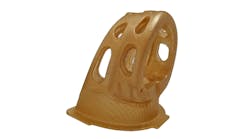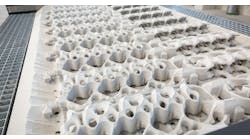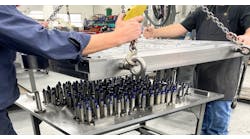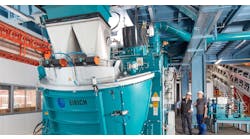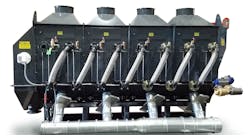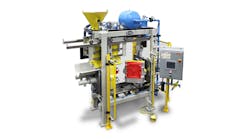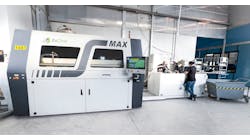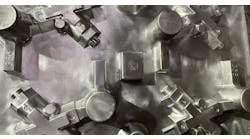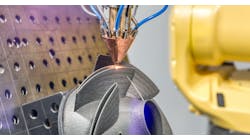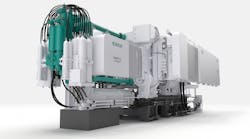Swiss machine builder Bühler AG is under contract to supply two large-scale high-pressure diecasting machine cells to Swedish automaker Volvo Cars for its assembly plant in Torslanda, Sweden.
Last year Bühler introduced two new high-pressure diecasting machines to address automotive demand for larger and more complex parts. The Carat 840 and the Carat 920 machines achieve locking forces of up to 92,000 kilonewtons (kN), allowing automakers to manufacture structural castings for body-in-white assemblies with complex forms and thin walls, called “megacastings.”
Bühler’s Carat two-platen diecasting machine series are supplied with a patented and stiffened platen design for homogenous clamping force application, allowing minimum deflection and a high degree of casting dimensional accuracy.
The Volvo order calls for two Carat 840 machines. Details of the installation schedule have not been announced.
“Megacasting is of utmost importance for the entire diecasting industry,” according to Cornel Mendler, managing director of Bühler Die Casting. “Megacasting gives the trend towards structural casting another push by extending the range of applications to complete body sections with the use of the new, large Carat solutions with up to 92,000 kN locking force."
According to Bühler, megacastings reduce complexity in automotive production by consolidated 70 to 100 separate castings as a single diecast part. “These single-piece castings will generally be produced close to the automotive assembly line, which allows for better integration and reduced transport,” the diecasting process developer detailed. “Aluminum castings have the potential to be almost CO2 neutral, when using low CO2 aluminum alloys and biogas for the melting furnaces. The aluminum that goes into overflows can be remelted directly and reused in the diecasting cell, thereby avoiding transport and recycling. Thinking a step further, the usage of lighter aluminum parts can reduce the energy consumption of the cars over their entire lifecycle.”
